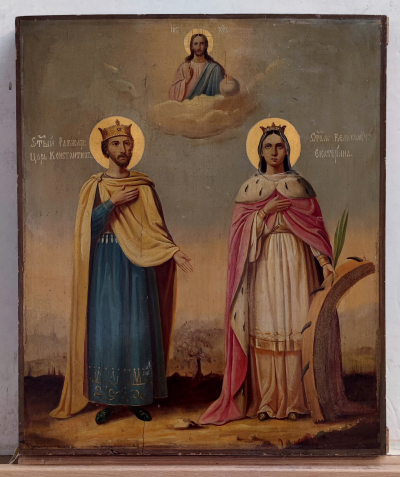Saint Constantine (†337), also known as Constantine the Great, was a Roman emperor and the first Roman emperor to convert to Christianity. He played a pivotal role in elevating the status of Christianity in Rome, decriminalizing Christian practice, and ceasing Christian persecution in a period referred to as the Constantinian shift. Constantine is also the originator of the religiopolitical ideology known as Constantinianism, which epitomizes the unity of church and state, as opposed to the separation of church and state. He founded the city of Constantinople and made it the capital of the Empire, which remained so for over a millennium. He convened the First Council of Nicaea in 325, which produced the statement of Christian belief known as the Nicene Creed. The Church of the Holy Sepulchre was built on his orders at the purported site of Jesus' tomb in Jerusalem and was deemed the holiest place in all of Christendom.
Saint Catherine of Alexandria (†305), also known as Saint Catherine of the Wheel and The Greatmartyr Saint Catherine is, according to tradition, a Christian saint and virgin, who was martyred in the early 4th century at the hands of the pagan emperor Maxentius. The emperor then asked Catherine to be his queen, if only she would worship his idols. When she refused, she went to the place of execution, followed by a crowd who mourned her. She told the unbelievers to mourn their own demise. She prayed and was beheaded at the age of 18, and milk flowed from her wound. Her fragrant relics are at St Catherine's monastery at Mount Sinai.







 Change language to English
Change language to English